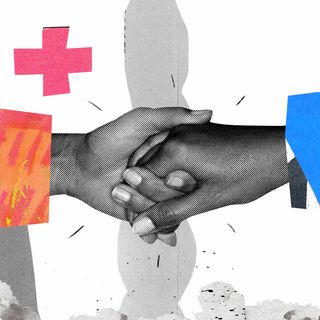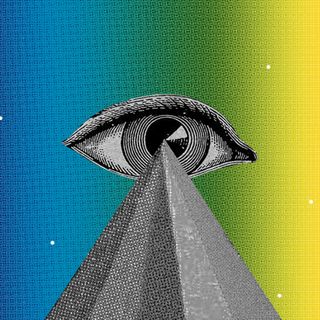Doctors at the Sir Ganga Ram Hospital in Delhi have reported more than 12 cases of Covid19-related black fungus, or mucormycosis, with symptoms like facial numbness, obstructions on one side of the nose, or pain and swelling of the eyes.
According to the U.S. Centers for Disease Control (CDC), mucormycosis is a serious but rare mold infection that is caused by a group of molds called mucormycetes. The infection can cause vision loss, damage to the nose and jaw bones, and — in the most severe cases, where the fungus makes its way to the brain — death.
The molds are present naturally in the environment, particularly in soil and decaying organic matter. “Most people come in contact with microscopic fungal spores every day, so it’s probably impossible to completely avoid coming in contact with mucormycetes. These fungi aren’t harmful to most people,” the CDC states, adding that humans with weakened immune systems, however, are vulnerable to the infection. Mucormycosis commonly affects the sinuses or lungs after an individual inhales fungal spores from the air. The mold spores can also enter the system through cuts, burns, or other forms of skin injuries.
Delhi isn’t the only place where the rare fungal infection has surfaced amid the pandemic. Reports suggest that in Bengaluru, mucormycosis has been reported in at least four patients, two of whom succumbed to the infection. Earlier this month, in Ahmedabad, too, mucormycosis was detected in five patients, two of whom died, while two others lost their eyesight. In all of these cases, the patients were either suffering from Covid19 or had recently recovered from it.
“The frequency with which we are witnessing the occurrence of Covid19-triggered mucormycosis with high morbidity and mortality is alarming. Early clinical suspicion on symptoms such as nose obstruction, swelling in the eye or cheeks, and black dry crusts in the nose should immediately prompt a biopsy and start of the anti-fungal therapy as early as possible,” Dr. Manish Munjal, a senior E.N.T. surgeon at Sir Ganga Ram Hospital in Delhi, told The Indian Express.
Related on The Swaddle:
Why Some Covid19 Infections Last Weeks, Months, and Others Last Only Days
“They were admitted for Covid19, but in two days their sugar levels and blood pressure shot up. They had a black nasal discharge, after which we did a CT scan and MRI, which revealed the fungal infection in the sinus cavities and a nasal biopsy confirmed it,” Dr. Prateek Nayak, a consultant for E.N.T. surgery at Aster CMI Hospital in Bengaluru, told The New Indian Express. In Delhi, too, the doctors had noted “steeply elevated sugar and infection levels” in patients infected by mucormycosis.
According to experts, diabetes presents a risk factor for mucormycosis. “Uncontrolled diabetes can make patients vulnerable to the infection. … Many Covid19 patients who have moderate to severe illness have poorly controlled diabetes, but it can affect people of any age,” Dr. Vivekanand Padegal, director of pulmonology at Fortis Hospital in Bengaluru, explained. Experts note that high doses of steroids, too, can increase the risk of mucormycosis.
In Ahmedabad, both of these risk factors, in addition to compromised immune systems, were found in people infected by mucormycosis. “All the four patients had a history of uncontrolled sugar and they were on strong drugs including steroids. Their immunity was very low. We believe that these two conditions led to the rapid spread,” Dr. Parth Rana, an Ahmedabad-based retina and ocular trauma surgeon, told the media.
“We have recorded 19 cases of mucormycosis infection in Covid-19 recovered patients in the past three months. This is 4.5 times higher than the burden reported conventionally before the pandemic. This is a serious issue and healthcare providers should be extra-cautious….” cautioned Dr. Atul Patel, an infectious diseases specialist, chief consultant, and director of the Infectious Diseases Clinic of the Vedanta Institute of Medical Sciences, who was also part of an Indian study on mucormycosis in 2019.




